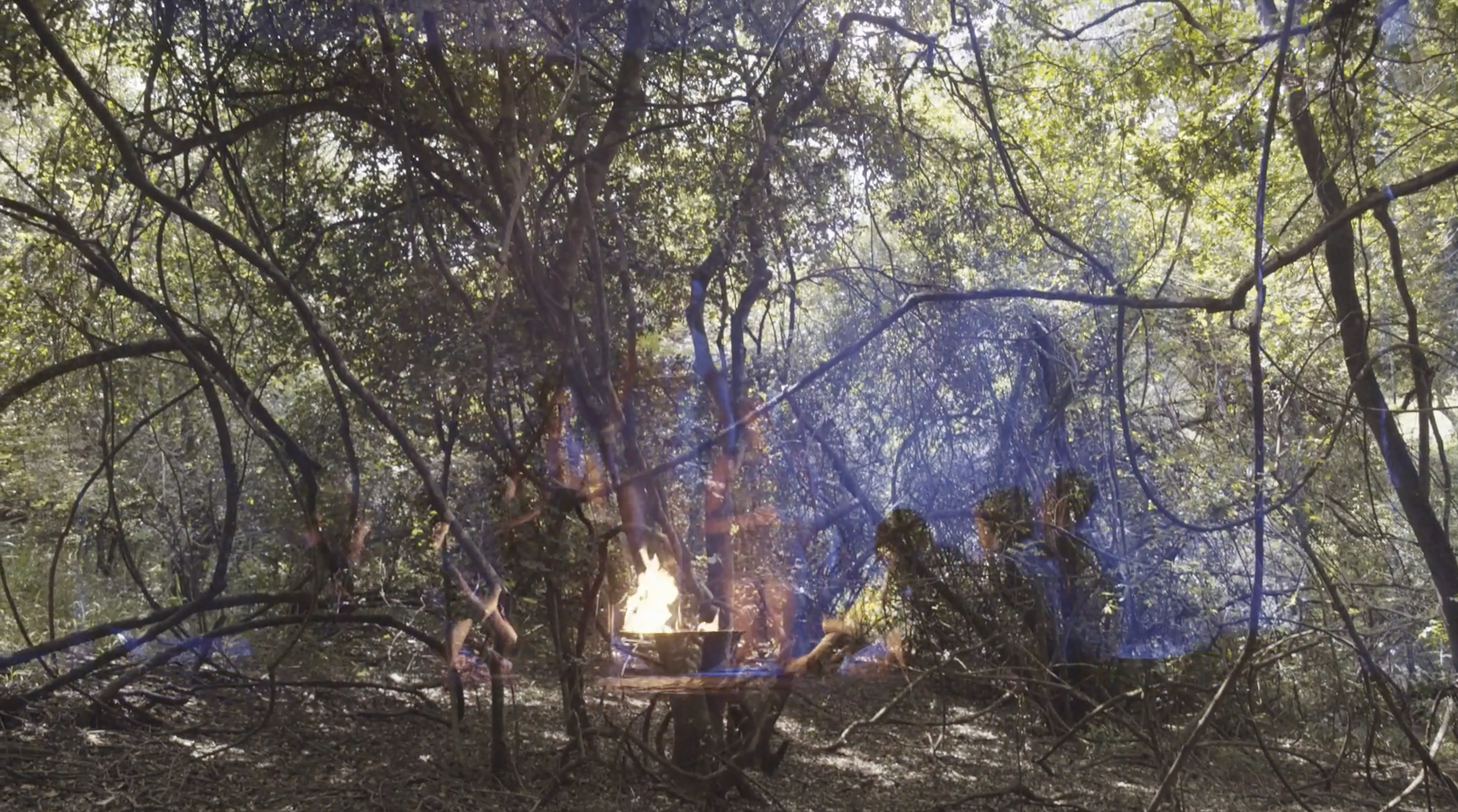All quotes from Thomas Sankara are from “Imperialism is the arsonist of our forests and savannas,” a speech given at the first International Silva Conference for the Protection of the Trees and Forests in Paris, 1986, published in the February 14, 1986, issue of Carrefour Africain, ➝.
Guinea is flat, so forest or mountain revolutionary tactics were not an option. Thus, Cabral is referring to the people becoming their own self-authored geological entity.
Sankara is referring here to François Mitterrand's 1978 book, L'Abeille et l'Architecte (The Bee and the Architect).
Frantz Fanon, The Wretched of the Earth (New York: Grove Press, 1963), 197.
Quoted in Richard Wright, “Colour Curtain: A report on the Bandung Conference,” in Richard Wright, Black Power (New York: Harper Perennial, 2008), 539, 541.
Richard Wright, “Colour Curtain,” 438, 538.
Richard Wright, “Colour Curtain,” 439.
The All-African Peoples’ Conference in Cairo, Egypt, 1961, was framed by the CIA/MI5 involvement in the assassination of Congo President, Patrice Lumumba just two months before. See All-African People's Conference News Bulletin I no. 4 (Accra: 1959): 1–2. Also available as “What is neo-colonialism? full text of the main resolution passed by the third All-African peoples conference,” Labour Monthly 43, (June 1961): 276–79. During the Third World Conference on the Status of Women in Nairobi, Kenya in 1985, the Chipko forest protection women of northern India, Vandana Shiva, and Mathai all contributed to a women-of-color environmentalism that sought to develop alternative frameworks for development. This highlighted the differential impacts of the environment on women because of their structural proximities to poverty, social and sexual divisions of labor, and exclusions in political and economic decision-making forums. This was followed by the first Earth conference in 1991 (World Women’s conference for a Healthy Planet), which finally led to the 1992 Earth Summit, Rio de Janeiro.
James C. Scott, The Art of Not Being Governed (New Haven, Yale University press, 2009).
Leanne Betasamosake Simpson, A Short History of the Blockade (Alberta: University of Alberta Press and CLC, 2021), 10.
Aimé Césaire, Discourse on Colonialism (New York, Monthly Review Press, 2000).
National Archives WO 276/429, EAC/61806/OPS(K), General Headquarters East Africa, Tracking/Combat teams, Emergency Directive No. 14, page 2.
National Archives WO 276/429, Appendix ‘A’ EAC/61806/OPS(k), 6 December 1954.
Recently declassified British government secret documents (2007) on the topic of “The Encouragement of Surrenders” cite “iii) the live ‘Mau Mau’ spirit amongst the people, particularly the women” as a contributing factor to the lack of success in the Rift Valley (National Archives, FCO 141/6600, CAB/MM/7/6). These documents have to be viewed in a special room and handled with gloves because of the application of pesticides to the files.
Maathai speaking in Lisa Merton and Alan Dater’s documentary film titled Taking Root: The Vision of Wangari Maathai (2008).
“Wangari Maathai: Nobel Lecture,” The Nobel Prize, lecture recorded December 10, 2004, ➝.
Sylvia Wynter “Is ‘Development’ a Purely Empirical Concept or also Teleological?: A Perspective from ‘We the Underdeveloped,’” in Prospects for Recovery and Sustainable Development in Africa, ed. Aguibou Y. Yansané (Westport, CT: Praeger, 1996), 229–316.
Wynter “Is ‘Development’ a Purely Empirical Concept,” 302.
Walter Rodney, Decolonial Marxism: Essays from the Pan-African Revolution (London: Verso, 2022), 297.
Mette Marie Kallehauge and Malou Wedel Bruun eds. Cave_bureau: The Architect's Studio (Zürich: Lars Müller, 2023), 25.
Cabral quoted in Filipe Carreira da Silva and Monica Brito Vieira, “Amílcar Cabral, Colonial Soil and the Politics of Insubmission,” Theory, Culture & Society 42, no. 1 (January 2025): 19–35. The authors note that in 1941, when Cabral is 17, he witnesses one of the worst droughts ever to affect the archipelago of Cape Verde in which some 20,000 Cape Verdeans starved to death, a figure that rose to an estimated 45,000 deaths.
Walter Rodney, How Europe Underdeveloped Africa (London: Verso, 2018), 238.
Césaire, Discourse on Colonialism, 21.
Rodney, Decolonial Marxism, 45.
Material economy is what is positioned as that which saves the African economy via the psychic infantilization that posits Africa as a child in global economies or as a geophysical landmass that has somehow been depressed by a great subducting weight (“Africa Rising”) rather than colonialism and its after- and new-lives that continue to try to “underdevelop” African economies. Development is then offered as a route to adulthood. Given that 90% of Africa’s natural resources are owned by countries external to the continent, with patsy shell fronts, what does this say about the paternalism that environmentally guides Africa as a site of extraction without end. See Walter RodneyHow Europe Underdeveloped Africa.
Rodney, Decolonial Marxism, viii.
See Édouard Glissant, Treatise on the Whole-World, trans. Celia Britton (Liverpool: Liverpool University Press, 2020); Césaire, Discourse on Colonialism.
“Wangari Maathai: Nobel Lecture,” ➝.
